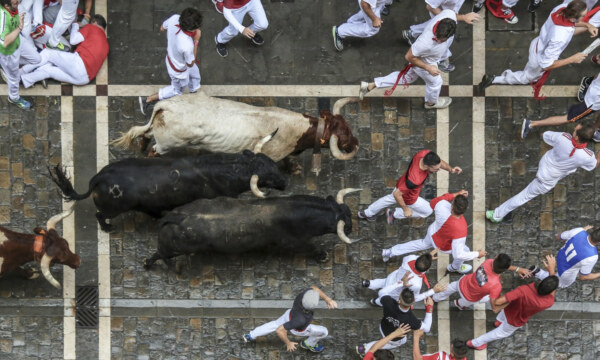How to manage seasonal employees in hospitality

Not every hospitality business needs staff year-round. Many establishments depend on seasonal employees to handle fluctuating demand. A beachfront resort thrives in summer, while ski lodges peak in winter. Hotels experience surges during festivals, conferences, or major sporting events. Some businesses require extra staff for Christmas markets, New Year’s Eve, or harvest seasons in wine regions. Regardless of the reason, finding and managing seasonal employees efficiently is essential. The right approach ensures seamless service, maintains operational efficiency, and enhances the guest experience. From hiring to training and motivation, a strategic plan helps businesses maximise seasonal staff performance while minimising disruptions.
Managing seasonal staff at scale can be challenging, but Mapal OS provides hospitality businesses with an integrated suite of management solutions to optimise recruitment, training, and workforce engagement. By digitising key processes such as compliance, learning, scheduling, and performance tracking, Mapal OS helps operators improve efficiency, reduce staff turnover, and enhance workplace culture—critical factors in successfully managing seasonal employees.
1. Effective hiring strategies for seasonal staff
Finding seasonal workers requires targeted recruitment. Job boards, universities, and training institutions offer strong candidate pools. Returning employees provide experience and reliability, reducing training time. Referrals from existing staff can bring in trustworthy hires.
Streamlining hiring is essential. Digital applications, video interviews, and prioritising soft skills over experience ensure quick integration. Seasonal staff must be adaptable and customer-focused.
Cultural fit is crucial. Temporary employees should align with business values and service standards. Mapal’s culture suite helps hospitality businesses maintain a strong company culture across both seasonal and permanent staff, reinforcing shared values and service consistency.
2. Training and onboarding: Setting seasonal workers up for success
Onboarding must be efficient. Digital training systems help seasonal employees get up to speed quickly, reducing the time spent on classroom-style learning.
Essential training areas include customer service, problem-solving, and compliance with health and safety regulations. Providing interactive, scenario-based training ensures employees retain key information and apply it effectively in real-world situations.
Flow Learning is a dedicated training platform within Mapal OS that enables hospitality businesses to deliver structured, mobile-friendly learning experiences. Seasonal employees can access training anytime, ensuring they develop the necessary skills without disrupting daily operations. A well-structured onboarding process leads to better performance and higher retention rates.
3. Retaining motivation and performance during peak season
Motivated seasonal employees perform better. Clear communication of shift expectations, responsibilities, and performance standards helps prevent misunderstandings and maintain consistency.
Incentives improve engagement. Bonuses, shift flexibility, and staff perks such as discounts or meals encourage high performance. Recognising good work, whether through awards or simple appreciation, fosters loyalty.
Team dynamics matter. Encouraging social interaction and fostering a positive work environment helps seasonal employees feel valued. Strong leadership is key—regular check-ins and support ensure motivation stays high. With the right approach, seasonal staff integrate seamlessly, contributing to the overall success of the business.
4. Handling challenges and ensuring smooth operations
Seasonal employment presents challenges. Scheduling conflicts arise, particularly with student workers. Workforce management tools help optimise shift planning and ensure coverage during peak times.
Customer service consistency is vital. Ongoing micro-training reinforces brand and service standards. Digital training solutions allow businesses to provide continuous learning throughout the season, helping staff maintain high-quality service levels.
Flexibility is essential. Seasonal employees often cover multiple roles or adapt to changing demands. Open communication, problem-solving, and a supportive work culture help overcome operational challenges, ensuring smooth service during peak periods. Well-managed seasonal staff contribute to an efficient and stress-free hospitality environment.
5. Post-season wrap-up: Evaluations and retention for next year
End-of-season evaluations provide insights. Exit interviews help identify strengths, challenges, and areas for improvement in training and operations. Collecting feedback from seasonal employees ensures better preparation for the next peak period.
Retaining top seasonal workers saves recruitment time and costs. Keeping a database of strong performers and maintaining contact increases rehiring success. Offering loyalty incentives encourages returnees.
Tracking performance digitally ensures businesses identify top candidates for future roles. Investing in engagement and workplace culture helps hospitality businesses build long-term relationships with their seasonal workforce. A well-planned wrap-up leads to smoother transitions and better performance each season.
Conclusion
Managing seasonal staff requires efficient hiring, structured training, and strong leadership. Mapal OS streamlines workforce management, from recruitment to training and engagement, helping businesses optimise performance during peak seasons. Flow learning ensures seasonal employees receive effective, mobile-friendly training, while Mapal’s culture suite reinforces workplace culture, improving retention and service quality. Addressing challenges proactively ensures smooth operations, even in busy periods. Retaining top seasonal workers for future years reduces hiring costs and builds a stronger workforce. With the right approach, businesses can maximise seasonal employee contributions, ensuring consistent service quality year after year.
The editorial unit
























Facebook
Twitter
Instagram
YouTube
RSS